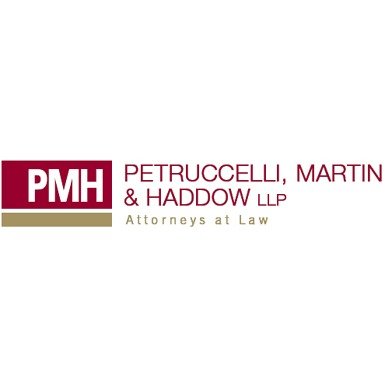Best Bad Faith Insurance Lawyers in Portland
Share your needs with us, get contacted by law firms.
Free. Takes 2 min.
List of the best lawyers in Portland, United States
About Bad Faith Insurance Law in Portland, United States
Bad Faith Insurance refers to an unlawful practice where insurance companies act dishonestly or unfairly towards policyholders. In Portland, United States, there are specific laws and regulations in place to protect individuals from such occurrences.
Why You May Need a Lawyer
You may require legal help in Bad Faith Insurance cases if:
- Your insurance claim has been wrongfully denied or delayed
- The insurance company offers an unreasonably low settlement amount
- You face harassment or intimidation from the insurance company
- The insurance company fails to provide clear communication
- You suspect fraudulent practices on the part of the insurance company
Local Laws Overview
In Portland, United States, key aspects of local laws related to Bad Faith Insurance include:
- Oregon Revised Statute 746.230: Prohibits insurance companies from acting in bad faith and specifically defines unfair claims settlement practices
- Statute of Limitations: There are time limits within which a lawsuit related to Bad Faith Insurance must be filed
- Possible Punitive Damages: In certain cases, policyholders may be eligible to seek punitive damages against insurance companies
Frequently Asked Questions
1. What constitutes Bad Faith Insurance?
Bad Faith Insurance refers to unfair practices by insurance companies, such as wrongful denial of claims, delaying necessary payments, or offering unreasonably low settlement amounts.
2. How can I prove Bad Faith Insurance in Portland?
To prove Bad Faith Insurance, you may need to demonstrate that the insurance company acted dishonestly, unreasonably, or failed to fulfill its contractual obligations. Collecting evidence, documenting communication, and seeking legal advice can help strengthen your case.
3. What damages can I recover in a Bad Faith Insurance claim?
If successful in a Bad Faith Insurance claim, you may be entitled to recover actual damages, such as the amount wrongfully denied or unpaid by the insurance company. In certain cases, you may also be eligible to seek punitive damages, which are intended to punish the insurance company for their misconduct.
4. How long do I have to file a Bad Faith Insurance lawsuit in Portland?
The statute of limitations in Portland for filing a Bad Faith Insurance lawsuit is typically two years from the date the insurance company engaged in bad faith conduct. It is crucial to consult with a lawyer promptly to understand your specific timeline.
5. What can a lawyer do to help with my Bad Faith Insurance case?
A lawyer experienced in Bad Faith Insurance can evaluate your case, negotiate with the insurance company on your behalf, gather evidence, file necessary paperwork, and represent your interests in court if litigation becomes necessary. Their expertise can increase your chances of obtaining a fair settlement or judgment.
Additional Resources
For further information and assistance regarding Bad Faith Insurance, you may find the following resources helpful:
- Oregon Department of Consumer and Business Services - Insurance Division
- Oregon State Bar Association - Insurance Law Section
- Legal Aid Services of Oregon - Insurance Law Assistance
Next Steps
If you believe you have experienced Bad Faith Insurance in Portland, United States, it is recommended to take the following steps:
- Collect all relevant documents, including insurance policy details, correspondence, and claim-related information.
- Consult with a qualified attorney experienced in Bad Faith Insurance to evaluate your case and explore possible legal remedies.
- Follow your attorney's guidance in negotiating with the insurance company or pursuing legal action.
- Maintain open communication with your attorney, provide requested information promptly, and stay informed about the progress of your case.
- Assert and protect your rights as a policyholder by advocating for a fair resolution to your Bad Faith Insurance situation.
Lawzana helps you find the best lawyers and law firms in Portland through a curated and pre-screened list of qualified legal professionals. Our platform offers rankings and detailed profiles of attorneys and law firms, allowing you to compare based on practice areas, including Bad Faith Insurance, experience, and client feedback.
Each profile includes a description of the firm's areas of practice, client reviews, team members and partners, year of establishment, spoken languages, office locations, contact information, social media presence, and any published articles or resources. Most firms on our platform speak English and are experienced in both local and international legal matters.
Get a quote from top-rated law firms in Portland, United States — quickly, securely, and without unnecessary hassle.
Disclaimer:
The information provided on this page is for general informational purposes only and does not constitute legal advice. While we strive to ensure the accuracy and relevance of the content, legal information may change over time, and interpretations of the law can vary. You should always consult with a qualified legal professional for advice specific to your situation.
We disclaim all liability for actions taken or not taken based on the content of this page. If you believe any information is incorrect or outdated, please contact us, and we will review and update it where appropriate.








